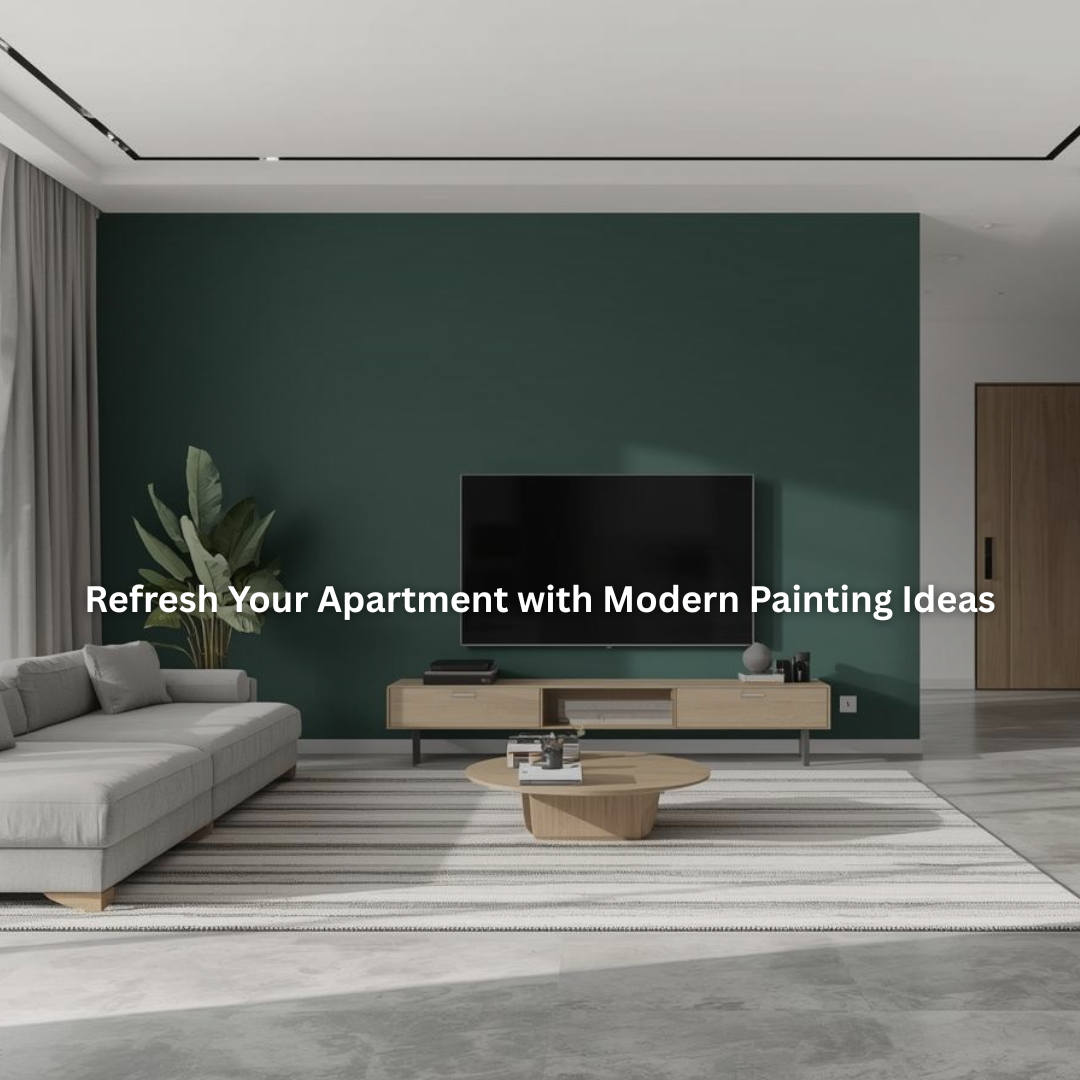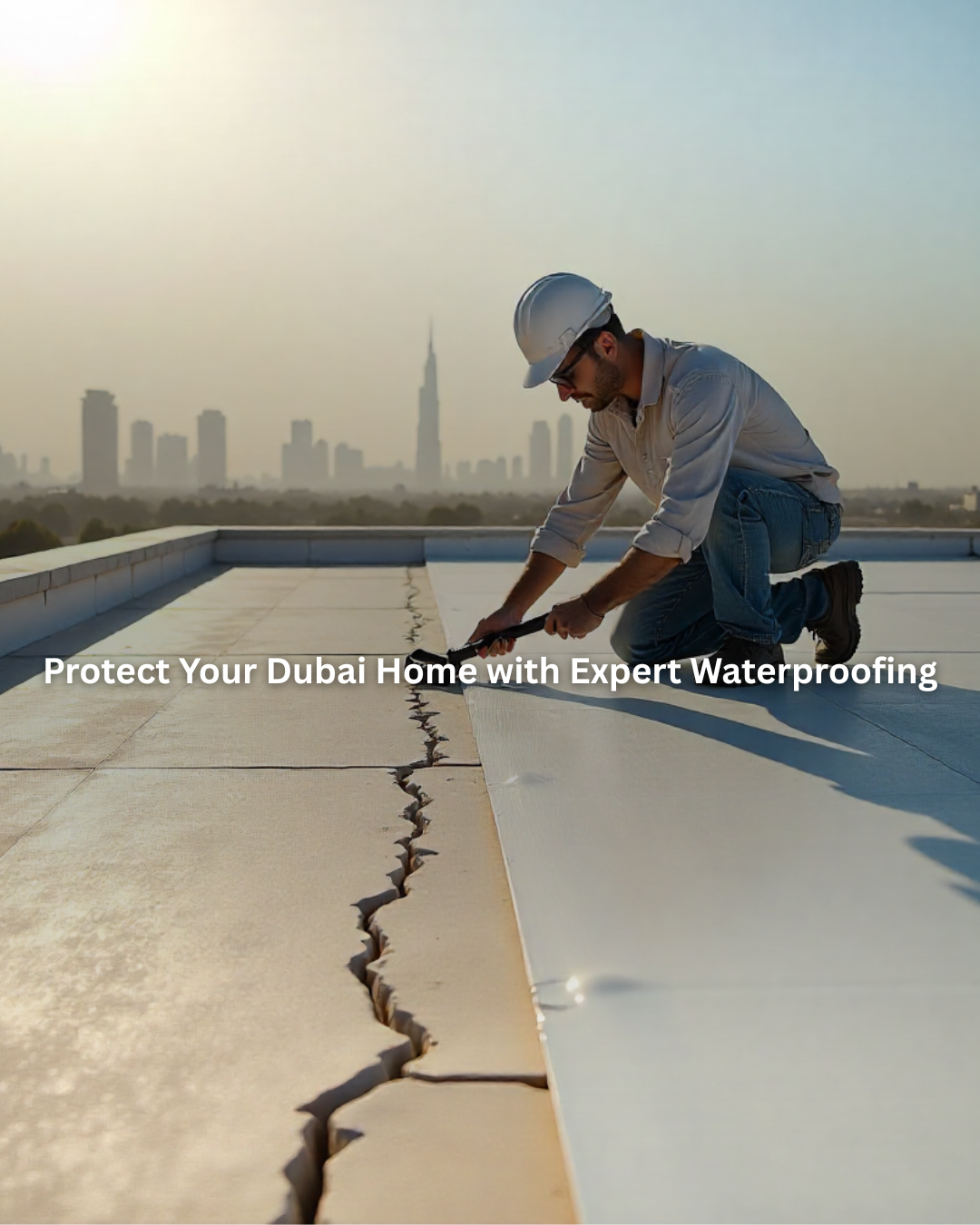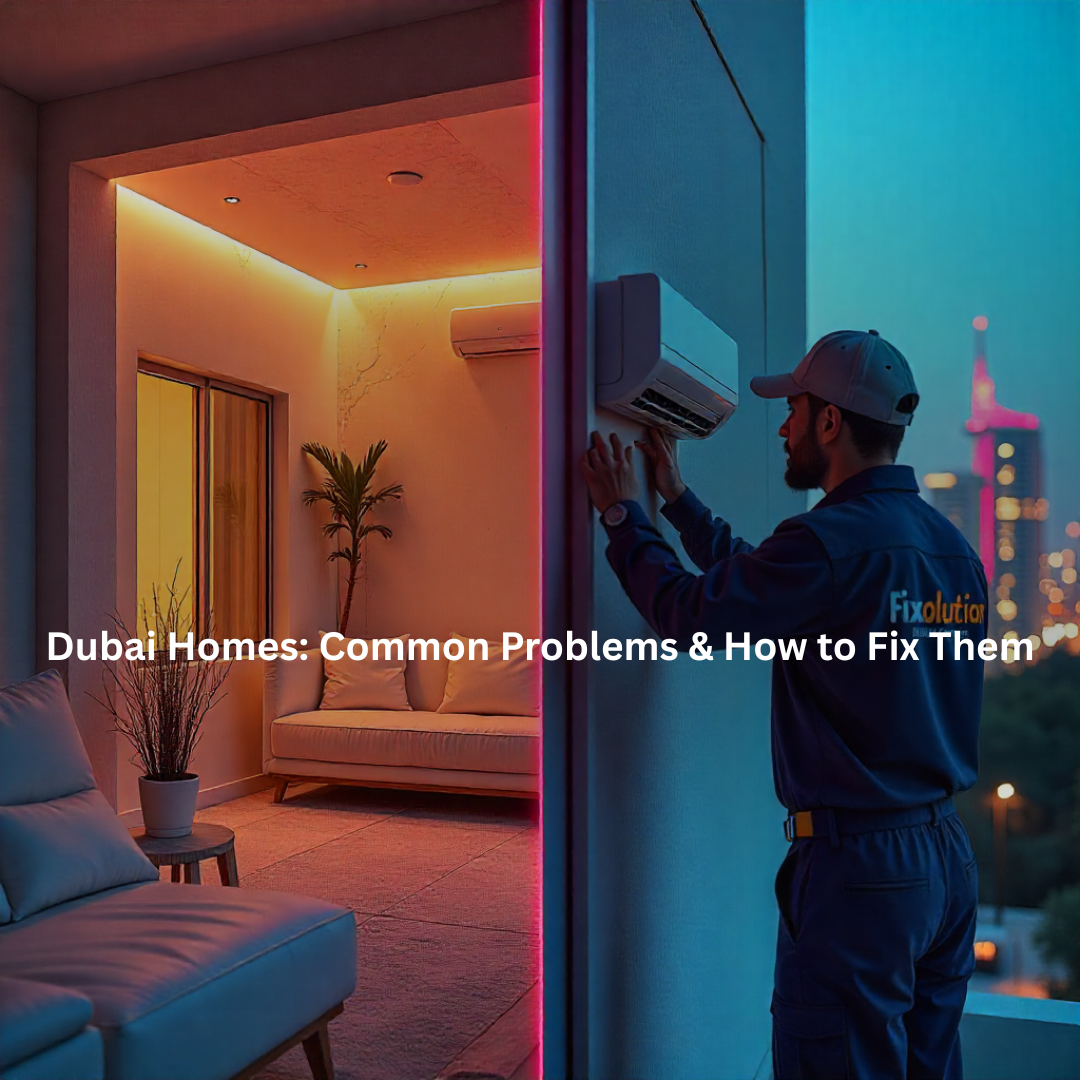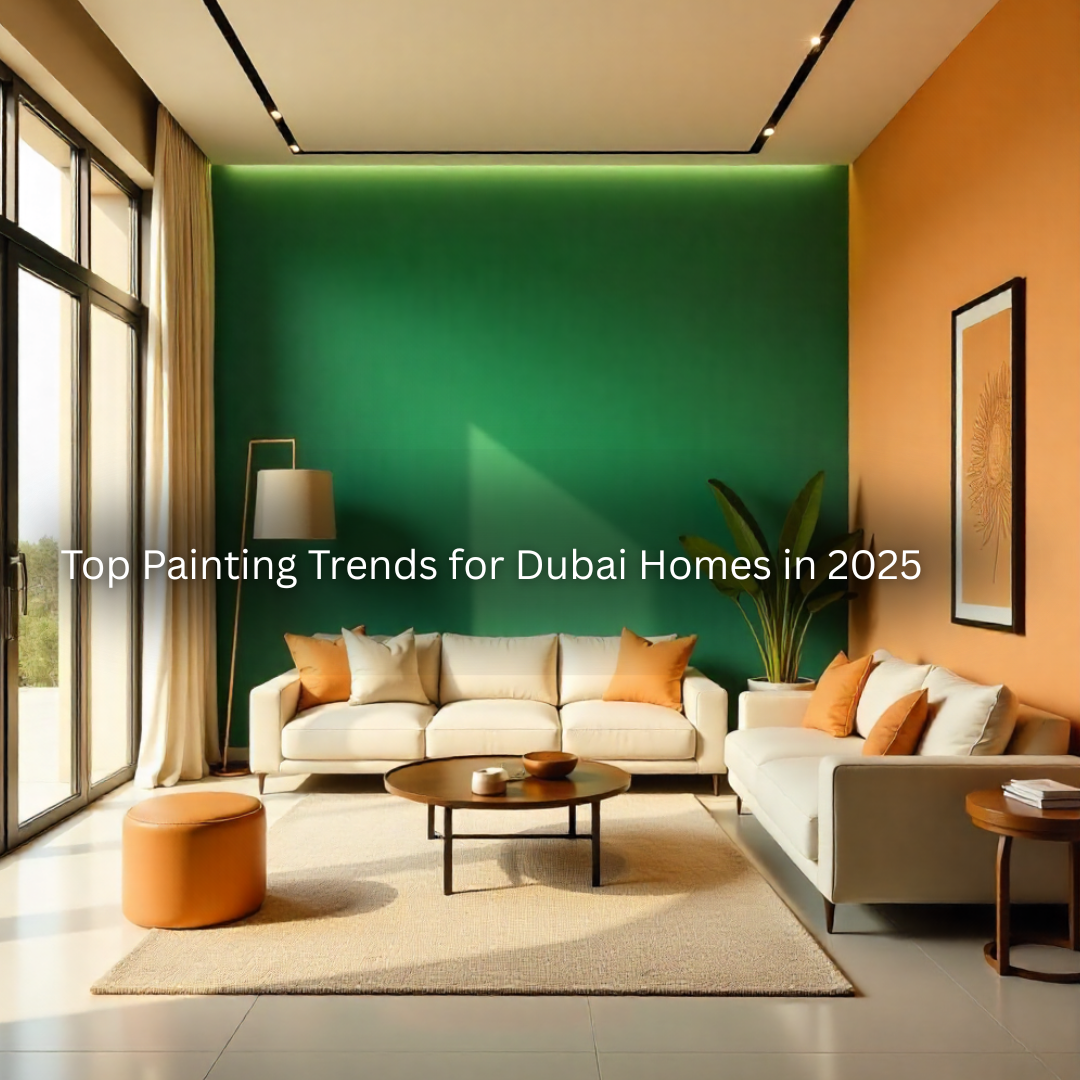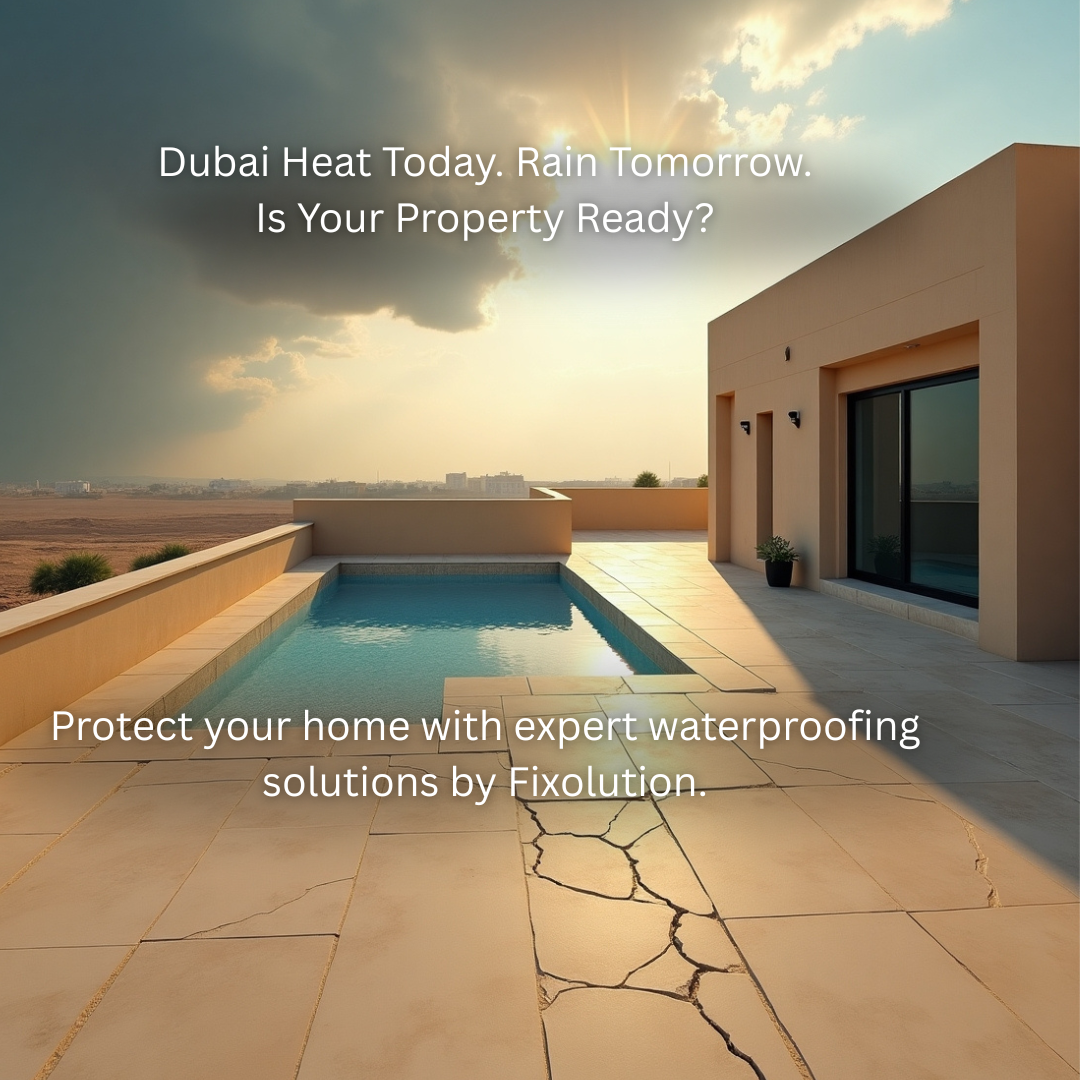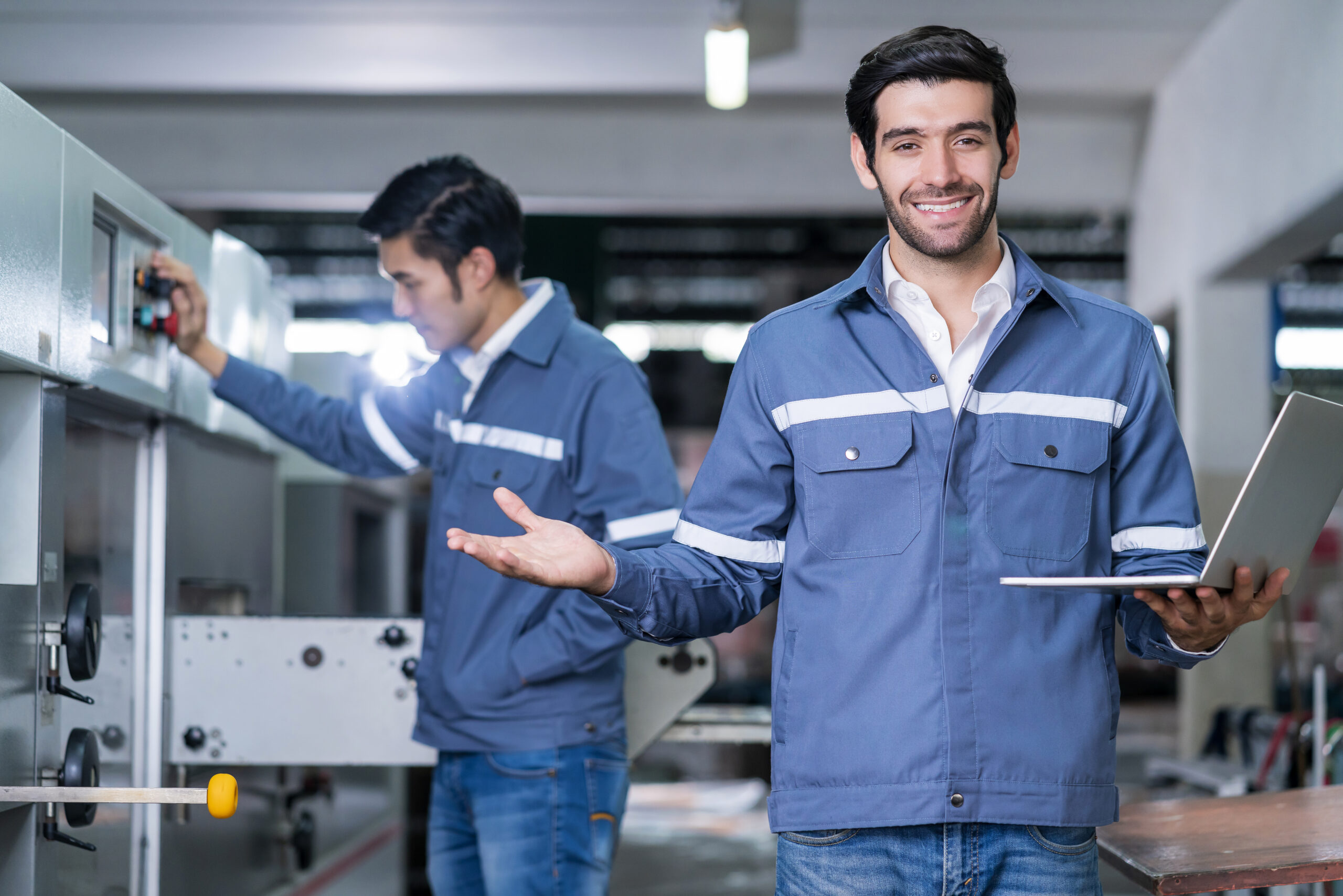Introduction: Waterproofing isn’t optional in Dubai’s climate
Dubai’s combination of intense UV exposure, high humidity, and periodic heavy downpours creates the perfect storm for leaks, mold, and structural damage. Add AC condensation and balcony planters into the mix, and even new homes can experience ceiling stains or swollen joinery. Proper waterproofing in Dubai protects your property’s structure, indoor air quality, and long-term value—while cutting future repair bills.
What is Waterproofing? (and the areas most at risk)
Waterproofing is the application of protective systems—membranes, coatings, and sealants—that block water ingress. In Dubai properties, the most vulnerable zones are:
-
Flat roofs & terraces (ponding water, UV breakdown)
-
Balconies & planter boxes (frequent watering, hairline cracks)
-
Bathrooms, kitchens & wet areas (tile joints, drains, and penetrations)
-
Foundations & basements (ground moisture, hydrostatic pressure)
-
External walls & parapets (thermal movement, failed sealants)
-
AC drain lines & ducts (condensation leaks, insulation issues)
Why Waterproofing Matters in Dubai
-
Stops costly structural damage: Water expands cracks, corrodes rebar, and weakens concrete.
-
Prevents mold & health issues: Damp interiors fuel allergens; proper sealing safeguards air quality.
-
Protects finishes: Avoids peeling paint, efflorescence, swollen cabinetry, and warped flooring.
-
Improves energy efficiency: Dry, insulated envelopes help HVAC systems run more efficiently.
-
Boosts resale value: Documentation of professional waterproofing solutions in Dubai is a buyer confidence signal.
Current Market Trends Dubai Homeowners Should Know
-
Liquid-applied membranes (LAM) rising: Contractors increasingly prefer high-performance liquid membranes for complex geometries on roofs, bathrooms, and balconies.
-
UV-stable topcoats: Coatings with improved UV resistance extend roof life despite extreme sun exposure.
-
Cementitious systems for wet areas: Bathroom and kitchen substrates benefit from flexible cementitious layers under tiles.
-
Hybrid systems: Combining sheet + liquid membranes at details reduces weak points.
-
Sustainable choices: Low-VOC products and cool roof coatings reduce heat gain and VOCs.
-
Smart leak detection: Moisture meters and electronic leak monitoring help with early diagnostics.
-
Maintenance-as-a-service: Annual inspection contracts are becoming standard for villas and managed buildings.
Common Waterproofing Mistakes in Dubai (and how to avoid them)
-
Skipping substrate preparation – Dusty or cracked surfaces reduce adhesion.
-
Wrong system for the area – Roofs, bathrooms, and basements each require different membranes.
-
Ignoring movement joints – Temperature swings cause expansion; joints need elastomeric detailing.
-
Weak detailing at drains & edges – Most leaks begin at terminations.
-
No positive slope / poor drainage – Ponding water accelerates failures.
-
Rushing curing times – Dubai’s humidity affects curing; correct timing is critical.
-
No maintenance – Leaves, soil, and loose tiles compromise systems. Annual inspections catch issues early.
The Best Waterproofing Solutions
-
Liquid-Applied Membranes (polyurethane, polyurea, elastomerics)
Best for: Roofs, terraces, planter boxes.
Why: Seamless, crack-bridging, fast application. -
Cementitious Waterproofing (two-component flexible systems)
Best for: Bathrooms, kitchens, under tiles.
Why: Strong bond to concrete, cost-effective, tile-friendly. -
Sheet Membranes (self-adhesive or torch-applied)
Best for: Foundations, retaining walls, under slabs.
Why: Controlled thickness and long-term protection. -
Detailing & Protection
Fillets, reinforcement fabrics, termination bars, and UV-stable topcoats extend system life.
DIY vs Professional Waterproofing in Dubai
-
DIY: Limited to small fixes like re-sealing shower silicone.
-
Professional: Essential for roofs, balconies, wet rooms, and basements where leaks are costly and hidden.
How Fixolution Delivers Waterproofing That Lasts
-
Assessment & Diagnostics – Visual checks and moisture readings.
-
Specification – Selecting the right membrane and reinforcement.
-
Surface Preparation – Crack repairs, priming, and leveling.
-
Application & Detailing – Correct thickness, reinforced edges, drain detailing.
-
Curing & Protection – Following manufacturer guidelines.
-
Quality Assurance & Handover – Documentation, photos, and optional annual inspections.
When Should Dubai Homeowners Waterproof?
-
During new build or renovation.
-
Pre-summer to prepare roofs and balconies.
-
At first signs of damage: stains, musty smells, peeling paint, or damp spots.
Where to Waterproof First
-
Roof & Terrace – UV and foot traffic protection.
-
Bathrooms & Kitchens – Cementitious under-tile systems.
-
Balconies & Planters – Leak-proof detailing.
-
Foundations / Basements – Sheet membranes below grade.
-
External Walls & Parapets – Crack-bridging coatings and sealants.
Expert Tips for Long-Lasting Results
-
Ensure proper drainage slope.
-
Use flexible joints for thermal expansion.
-
Protect AC drain lines with insulation and trays.
-
Always waterproof under tiles, not just at the surface.
-
Keep project documentation for warranties and resale.
Costs & ROI
While costs vary by area size and system type, preventive waterproofing in Dubai typically costs far less than repairing structural damage or redoing interiors. It delivers strong ROI through reduced repairs, better air quality, and improved property value.
Frequently Asked Questions
Q: How long does waterproofing last?
A: Quality systems last 5–15+ years, depending on exposure and maintenance.
Q: Can waterproofing be applied over tiles?
A: In many cases yes, with priming and testing. For severe damage, removing tiles is smarter.
Conclusion
Waterproofing isn’t just an upgrade—it’s essential for protecting Dubai properties from heat, humidity, and water damage. The right system, applied correctly, prevents costly repairs and keeps your home or building in top condition.

